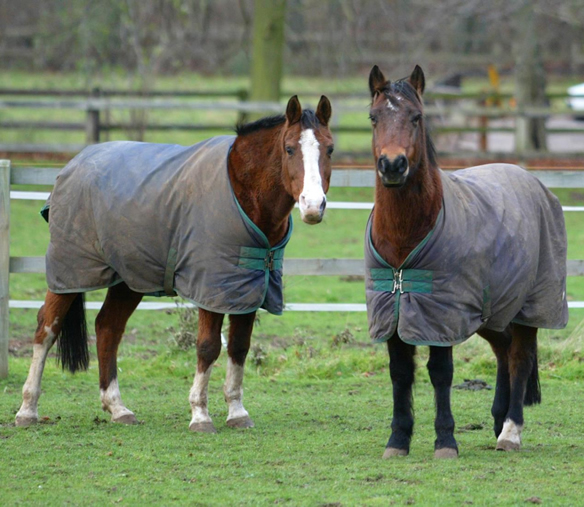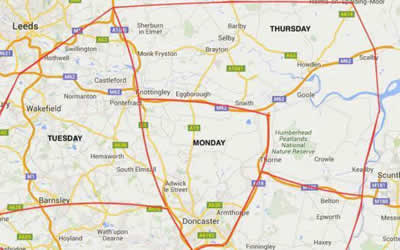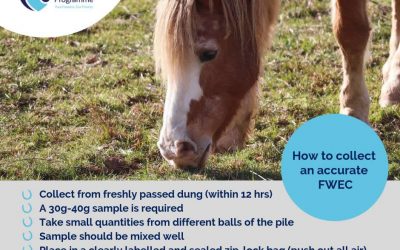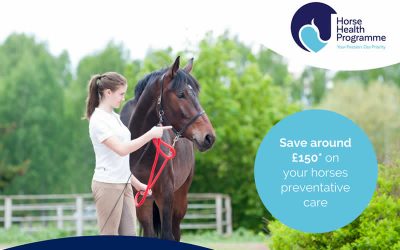As the nights draw in closer and the weather gets colder the time that our horses spend stabled inevitably increases. As a result we see lots of cases of impaction colics….
What is an impaction colic?
Colic means abdominal pain. Impactions can be a common cause of colic. The impaction is usually a firm mass of food in the large intestine at one of its hairpin bends.
This can be detected by us upon rectal examination.

What causes impactions?
A reduction in temperature can reduce your horses water intake leading to dehydration. As a result, the food contents in the large intestine becomes dry and firm.
Increased feeding of hay. Hay has a much lower water content in comparison to grass.
Reduced activity whilst stabled can slow the movement of food along the intestines.
What signs should you be looking out for?
- Rolling
- Sweating
- Flank watching, pawing
- Stretching the belly
Once one of our vets has examined your horse and diagnosed an impaction, we will aim to clear the blockage by rehydrating your horse. This is done by passing a stomach tube and giving the horse fluids and electrolytes.
If you suspect that your horse has colic, you should ring us immediately on 01977652280.
Colic is an emergency and requires the attention of a vet!
A really good article on what to do while you wait for the vet
THE EVC IMPACTION SURVIVAL GUIDE!
Impactions usually occur when your horse isn’t drinking as much. Things that you can do to prevent this happening include:
– Break up the ice in your water tanks as often as you can, or have several water options available in case one freezes
– Try floating a plastic ball in water tanks to stop the top freezing completely
– Add water to your horses feeds. If you know they are prone to impactions feeding a bran mash can be useful. Wetting hay can also help to get more water into your horse.
– If you know that your horse doesn’t drink much in the stable you can encourage them to drink more by flavouring their water: apple juice, peppermint extract and even orange squash have been known to work! Adding a spoonful of salt to your horses feed can also encourage them to drink more
– Some horses will get an impaction whilst stabled because they are bored and eat their straw bed. Try and make sure your horse has ad lib forage, fed through a small holed net, or double netted to make it last longer.
If they are prone to boredom on the long winter nights try introducing toys, such as a treat ball filled with low calorie nuts, footballs and small spacehoppers, or root vegetables like swedes drilled through and hung from the ceiling
– If your horse isn’t keen on playing in a frozen field, or your paddocks are too muddy for long turnout, if possible offer them some time in the school to stretch their legs and get them moving about
If you are concerned about your horse or want to discuss things further then don’t hesitate to give us a call on 01977652280
Our Zone Days
Please give at least 24 hours notice for zone visits as they are very popular and booked on a first come first served basis
WORM EGG COUNTS
Use our top tips to ensure you collect an accurate FWEC sample from your horse in order to get an accurate result …
Join our Horse Health Programme
The care your horse deserves


